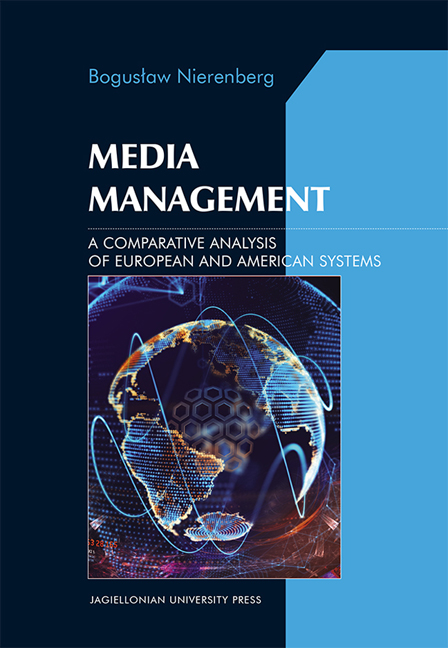Chapter 5 - Economic Aspects of Media Management
from Part 2
Published online by Cambridge University Press: 10 January 2018
Summary
Alan B. Albarran primarily [1996: 5] defined ‘media economics’ as a discipline investigating the way in which media industries use rare goods to create and distribute media contents among consumers in order to fulfi ll various needs and expectations. A few years later the same author defined “media economics” as a discipline which investigates the way organizations and media industries operate on different levels of their activity (e.g. global. national, household, individual) alongside other forces (e.g. global, regulatory, technological and social), by making use of theories, notions and rules resulting from both macro and microeconomic perspectives [Albarran 2010: 3]. Both of the mentioned definitions refer to the fulfi llment of social needs by means of a rare good (resource). A. B. Albarran does not define this good by providing just a general statement. According to the author of these considerations, this good stands for information, as the basic ingredient of media content.
Media economics as an area of research
Robert Picard [2006: 23] claims that media economics is a discipline which deals with examining how economic and fi nancial factors infl uence a variety of communicative media systems’ activities as well as individual organizations and enterprises, including telecommunications entities. R. Picard, considered to be the father of “media economics,” claims that from a technical point of view a thing like “media economics,” in the case that such a thing l existed, would mean that the laws of economics applied to different domains do not have any application for the media. It could seem that R. Picard holds completely different views in this scope compared to P. Drucker, who – let us remember – claims that information as a resource does not undergo the laws of classic economics. However, R. Picard notices the distinctness of media markets writing: “media economics is a specific translation of theory and economy to the media industry.” The word “specific” is key in this case. Therefore, both scholars see the distinctness and the economic specificity of the media sphere, yet they differ as to the level of this “specificity.”
- Type
- Chapter
- Information
- Media ManagementA Comparative Analysis of European and American Systems, pp. 89 - 104Publisher: Jagiellonian University PressPrint publication year: 2016

